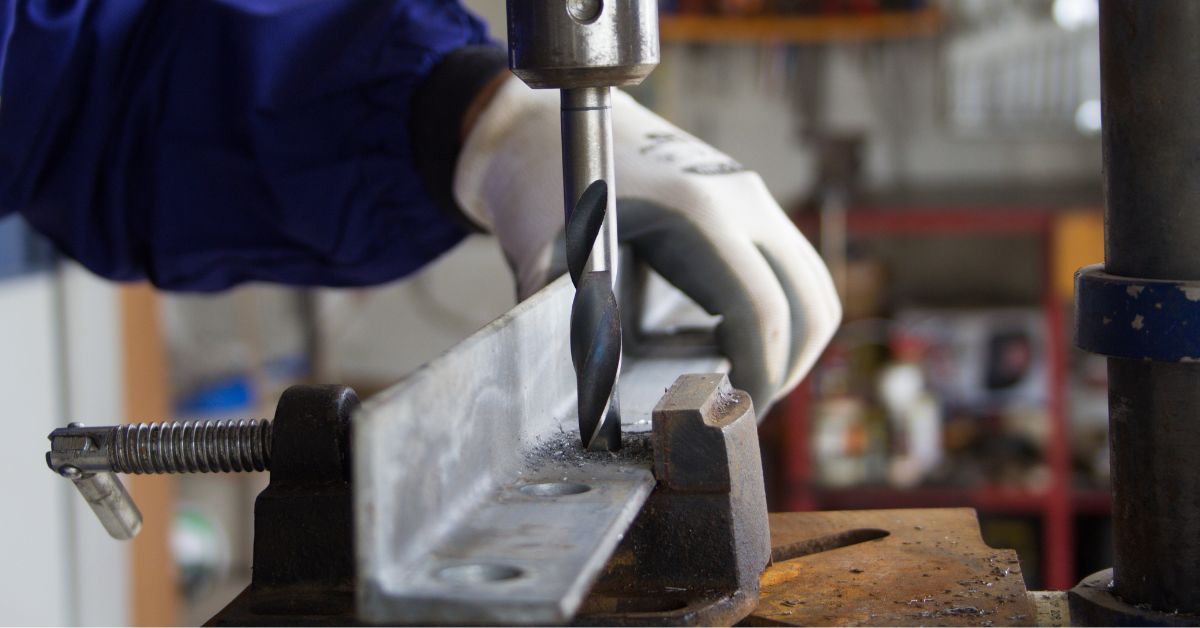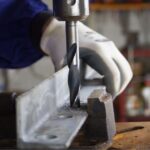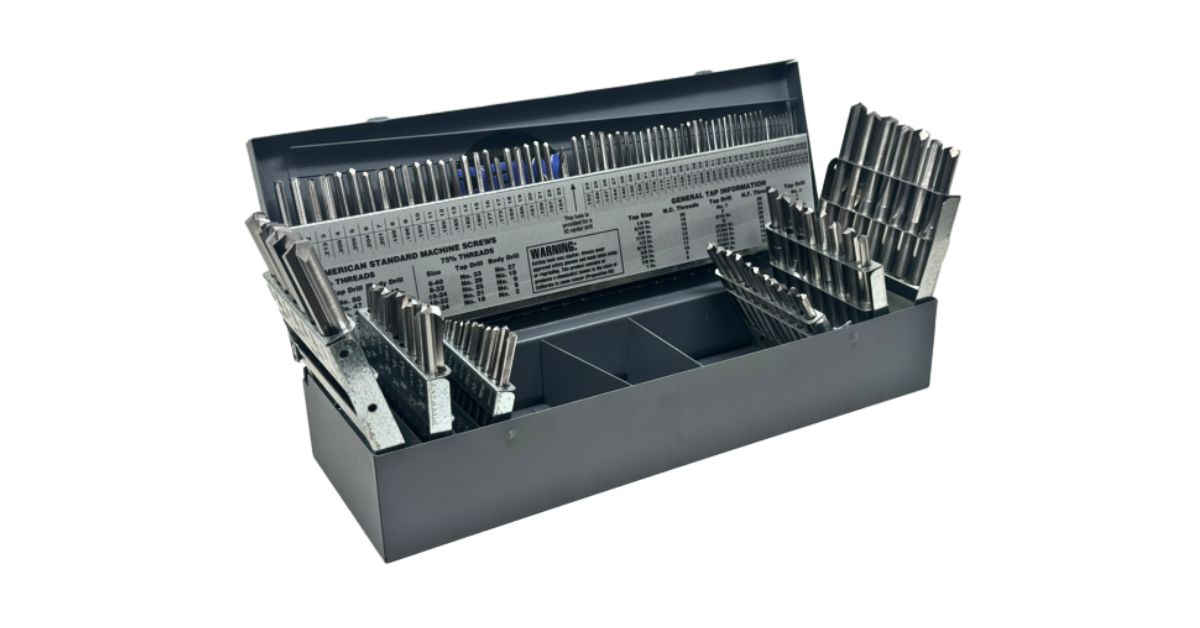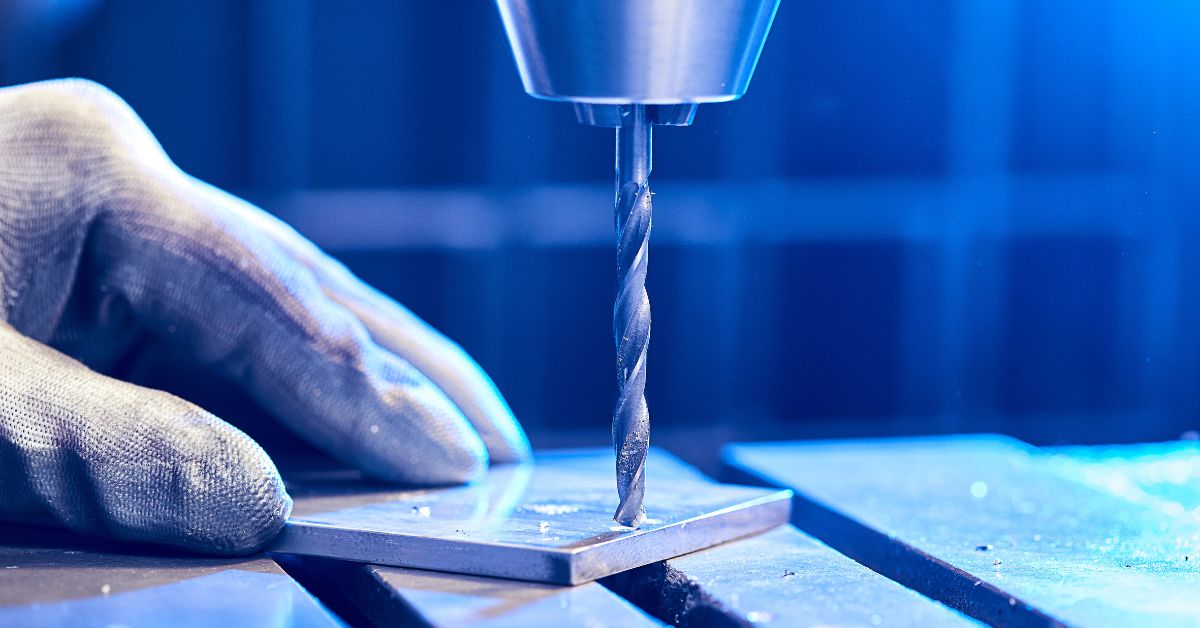Drilling into cast iron isn’t as straightforward as working with softer materials like wood or plastic. Cast iron’s unique combination of brittleness and hardness makes it prone to cracking or chipping if not handled correctly. Its abrasive texture can also wear down drill bits quickly, so using the wrong tools can result in poor performance, damaged materials, or even broken equipment.
That’s why it’s essential to choose the right types of drill bits for drilling into cast iron—typically those made from high-speed steel (HSS), cobalt, or carbide—and to apply proper drilling techniques, like using lower speeds and steady pressure. With the right preparation and tools, you can achieve clean, accurate holes in cast iron while extending the life of your equipment and maintaining a safer workspace.
Why Using the Wrong Drill Bit Can Be Problematic
Using an inappropriate drill bit for cast iron can lead to several issues. Inferior bits may dull quickly, break under pressure, or overheat, increasing costs and unnecessary downtime. The wrong bit type can also damage the cast iron, causing cracks, surface fractures, or imprecise holes that compromise the integrity of your work.
For example, using a general-purpose wood bit on cast iron will likely result in a rough cut and a burned-out bit within seconds. The unique composition of cast iron makes selecting a proper drill bit crucial for preserving your tools and materials.
Use These Drill Bits for Drilling Into Cast Iron
HSS Drill Bits
Among the most commonly used for drilling cast iron, HSS drill bits combine durability and affordability. They can withstand the heat generated during drilling for effective penetration without quickly dulling. HSS bits are a reliable choice for professionals and DIYers working on cast-iron projects, thanks to their performance and accessibility.
Cobalt Drill Bits
For those frequently working with cast iron, cobalt drill bits offer a step up in terms of durability and heat resistance. Containing a cobalt alloy that makes them harder and more wear-resistant than HSS bits, cobalt bits maintain their cutting edge for extended periods. They’re invaluable for high-volume jobs or tougher cast-iron grades.
Carbide Drill Bits
Carbide drill bits are often considered the premium choice for drilling into hard materials like cast iron. Tungsten carbide, the material used in these bits, provides unparalleled hardness and wear resistance. These characteristics make carbide drill bits exceptionally effective for precision drilling in cast iron, even for repetitive tasks. Investing in carbide drill bit sets ensures you’re equipped with variously sized bits to tackle diverse projects confidently.
Black Oxide-Coated Drill Bits
Black oxide-coated drill bits offer improved performance when working with cast iron. The coating enhances corrosion resistance while reducing friction during drilling, increasing the bit’s lifespan. Professionals who need a reliable option for standard cast-iron drilling often use these bits for their ideal balance of price and performance.
Titanium-Coated Drill Bits
Titanium-coated bits, including cast iron, are another excellent choice for metalworking. Their titanium nitride coating reduces wear and heat buildup, allowing for smoother drilling. Although slightly less durable than carbide or cobalt, titanium-coated drill bits balance efficiency and affordability, making them a popular option for contractors and machinists on a budget.
Assessing Drill Bit Point Angles for Cast Iron
The angle of the drill bit points impacts the effectiveness of cast-iron drilling. Bits with a steeper point angle, typically around 135 degrees, are preferable. This design minimizes walk-off and provides better penetration, improving accuracy and reducing the risk of damaging the cast-iron surface.
Keeping Drill Bits Cool During Use
Heat buildup is a common challenge when drilling into cast iron. Excessive heat can cause drill bits to dull or warp, compromising their effectiveness. To mitigate this, use coolant or lubricants specifically designed for metalworking. These products extend the lifespan of your drill bits and improve efficiency by reducing friction and heat during drilling.
Maintaining Your Drill Bits for Optimal Performance
Regular drill bits maintenance extends performance over time. Clean bits after each use to remove residue that may cause them to dull faster. Sharpen bits when necessary, as a sharp edge increases precision and efficiency during drilling. Proper storage, such as in a secure and organized case, also helps protect your investment. Follow these simple steps to keep your bits in top shape:
- Clean after each use: Wipe down your drill bits with a cloth to remove dust, debris, and material residue. Use a wire brush for cleaning. If contending with tougher buildup, soak the bits in a bit of solvent.
- Inspect for damage: Check for chips, cracks, or excessive wear in your equipment. Damaged bits should be replaced to avoid poor performance or further damage.
- Sharpen when needed: A drill bit sharpener or bench grinder restores the cutting edge. A sharp bit improves precision and reduces effort during drilling.
- Lubricate occasionally: Lightly oil the bits, especially after sharpening or cleaning with solvent, to prevent rust and keep them in good condition.
- Store properly: Keep drill bits in a secure, organized case or bit holder to prevent them from knocking together, as this can dull or damage the tips.
By following these steps, you’ll maintain the quality and effectiveness of your drill bits, saving time and money in the long run.
The Importance of Safety When Drilling Cast Iron
While selecting the right drill bit is critical, so is user safety. Always wear protective gear, including safety goggles and gloves, to shield yourself from flying debris, especially since cast iron tends to produce sharp, brittle shards when drilled. Skipping eye protection when drilling into cast iron can result in serious injuries from unexpected chip ejection.
Additionally, secure your workpiece firmly with a clamp or vise to prevent dangerous workpiece shifts during drilling. Taking these precautions creates a safer, more efficient work environment.
Investing in Quality Tools for Long-Term Success
Choosing the right types of drill bits for cast iron is an investment in your craft. The right tools improve your output, reduce downtime, enhance safety, and produce a professional finish. For those who frequently work with cast iron, exploring premium drill bit options like carbide or cobalt bits offers long-term value, allowing you to take on complex projects confidently.
Choose Drill Bit Warehouse for tools you can trust for every job. We only sell products that meet the highest performance standards. Whether you’re a professional contractor or a homeowner, you’ll find reliable, durable solutions built to last. Shop now to experience quality backed by firsthand expertise.






